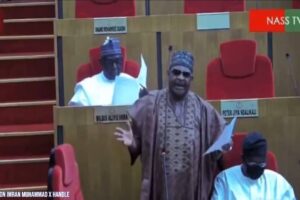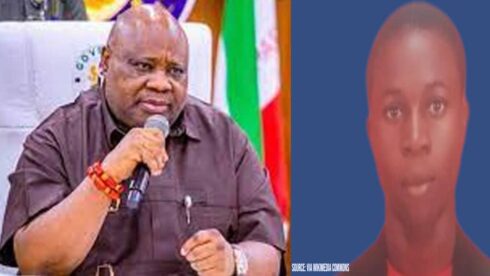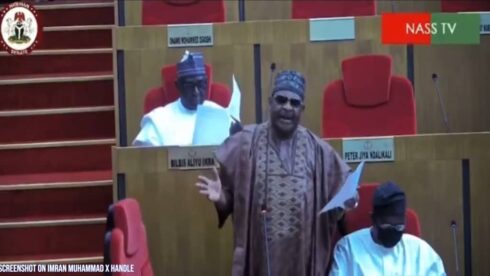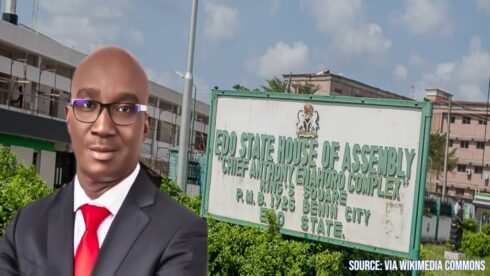Governor Ademola Adeleke of Osun State has utilized his constitutional powers to grant clemency to Segun Olowookere, a man sentenced to death for stealing a fowl. This extraordinary decision has ignited conversations nationwide, with supporters praising it as a gesture of mercy and opponents pointing to systemic flaws in Nigeria’s legal framework. Olowookere’s conviction in 2005, under what many have described as a harsh interpretation of the law, had long been a symbol of disproportionate punishment in the justice system.
Human rights advocates have consistently criticized the severity of the sentence, arguing it represented a grave injustice and a misuse of punitive laws meant for more serious crimes. By intervening, Governor Ademola Adeleke not only corrected what many saw as a judicial overreach but also underscored his administration’s commitment to justice reform. The decision is part of a broader agenda aimed at addressing systemic inequities and fostering a more compassionate legal framework in Osun State.
Background: The Case of Segun Olowookere
Segun Olowookere, a poultry farmer in his late 20s at the time of his conviction, was apprehended in 2005 for allegedly stealing a fowl valued at 800 naira. The case escalated when he was charged with armed robbery due to the claim that he was in possession of a weapon during the incident. This led to his sentencing under laws designed for much graver offenses.
Over the years, Olowookere’s plight became a rallying point for activists calling for judicial reform. Despite numerous appeals, the courts upheld the death sentence, citing adherence to procedural law. His case became a glaring example of the need for proportionality in sentencing and the importance of context in judicial proceedings.
Governor Ademola Adeleke’s Statement on the Pardon
In a public address announcing the pardon, Governor Ademola Adeleke emphasized the importance of mercy and justice in governance. He described Olowookere’s sentence as a miscarriage of justice and reaffirmed his administration’s commitment to ensuring fairness in the legal system. “Justice must serve to rehabilitate, not merely to punish,” the governor stated.
The clemency aligns with Governor Ademola Adeleke’s broader initiative to review controversial cases and commute harsh sentences. His administration has set up a panel to examine similar cases, aiming to identify and rectify injustices that undermine public confidence in the judiciary.
Public Reaction and National Implications
The governor’s decision has elicited mixed reactions across Nigeria. Human rights groups and legal experts have praised the move as a bold step toward judicial reform. “This pardon is not just about Olowookere; it’s about addressing systemic flaws that criminalize poverty,” said Aisha Abubakar, a prominent legal activist.
Conversely, critics argue that the pardon sets a dangerous precedent. Some claim it could embolden criminal behavior, while others see it as a politically motivated gesture. The case has reignited discussions about Nigeria’s penal system and the need for a more rehabilitative approach to justice.
Legal Experts Weigh In on the Clemency
Legal analysts have highlighted the broader implications of Olowookere’s pardon for Nigeria’s justice system. They argue that his case underscores the urgent need for sentencing reform and greater discretion in the application of punitive measures. Many have called for the review of laws that enable such harsh penalties for minor offenses.
Professor Chike Umeh, a constitutional law expert, noted, “The case of Olowookere illustrates how outdated legal frameworks can lead to gross miscarriages of justice. Governor Ademola Adeleke’s intervention is a wake-up call for the judiciary to prioritize fairness over rigid legalism.”
Next Steps for Criminal Justice Reform in Osun State
Governor Ademola Adeleke’s pardon could mark the beginning of a larger movement for criminal justice reform in Osun State and beyond. The administration has announced plans to introduce legislation aimed at reducing judicial excesses and promoting alternative sentencing for petty crimes.
Additionally, the governor has called for a comprehensive review of the state’s prison population to identify cases of undue hardship. By addressing these systemic issues, Ademola Adeleke hopes to create a justice system that balances accountability with compassion, ensuring that no one else faces such disproportionate punishment for minor infractions.
Table of Contents
Discover more from OGM News NG
Subscribe to get the latest posts sent to your email.














